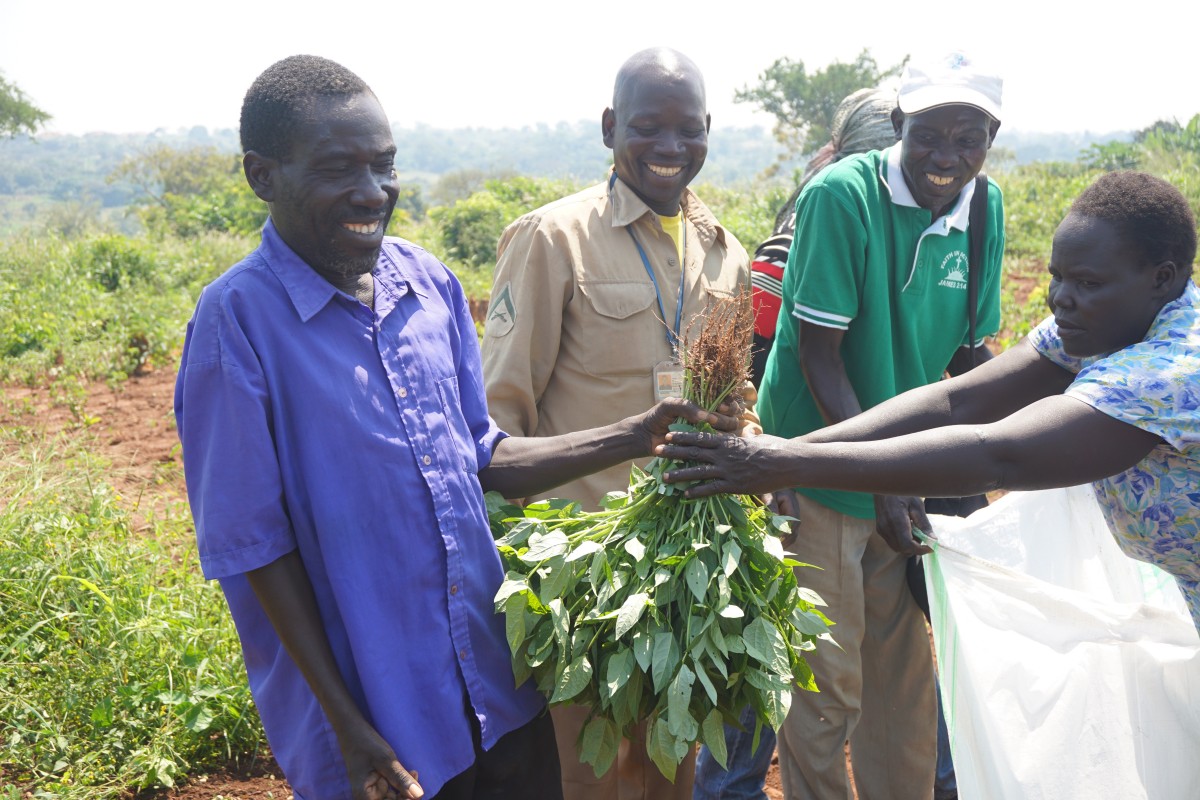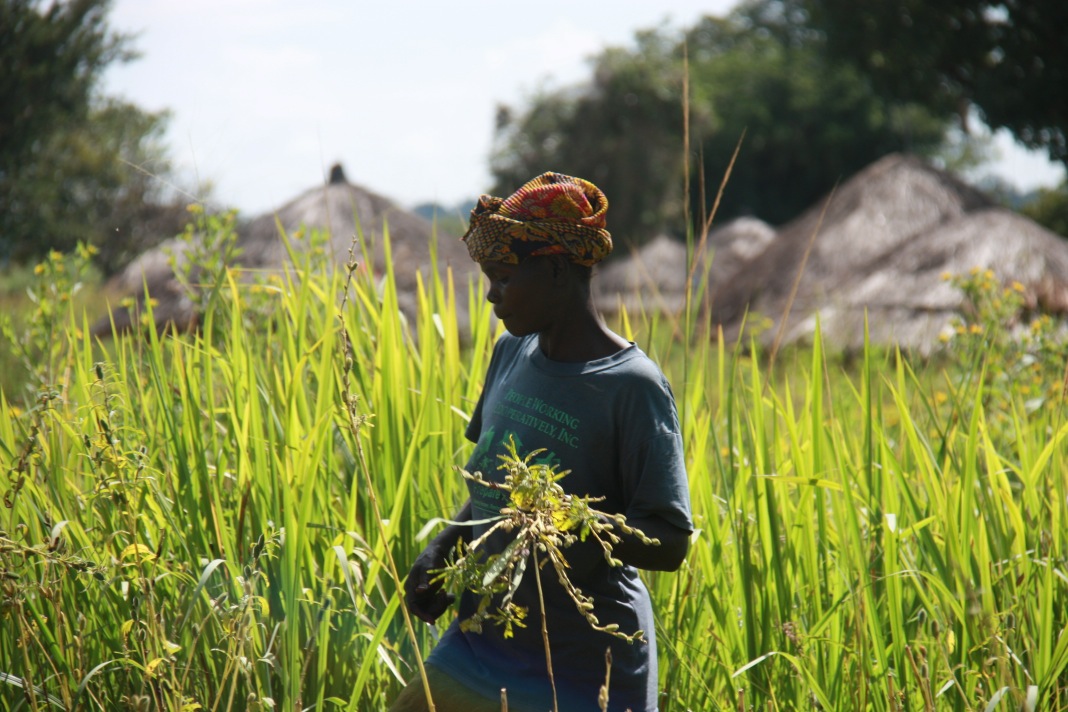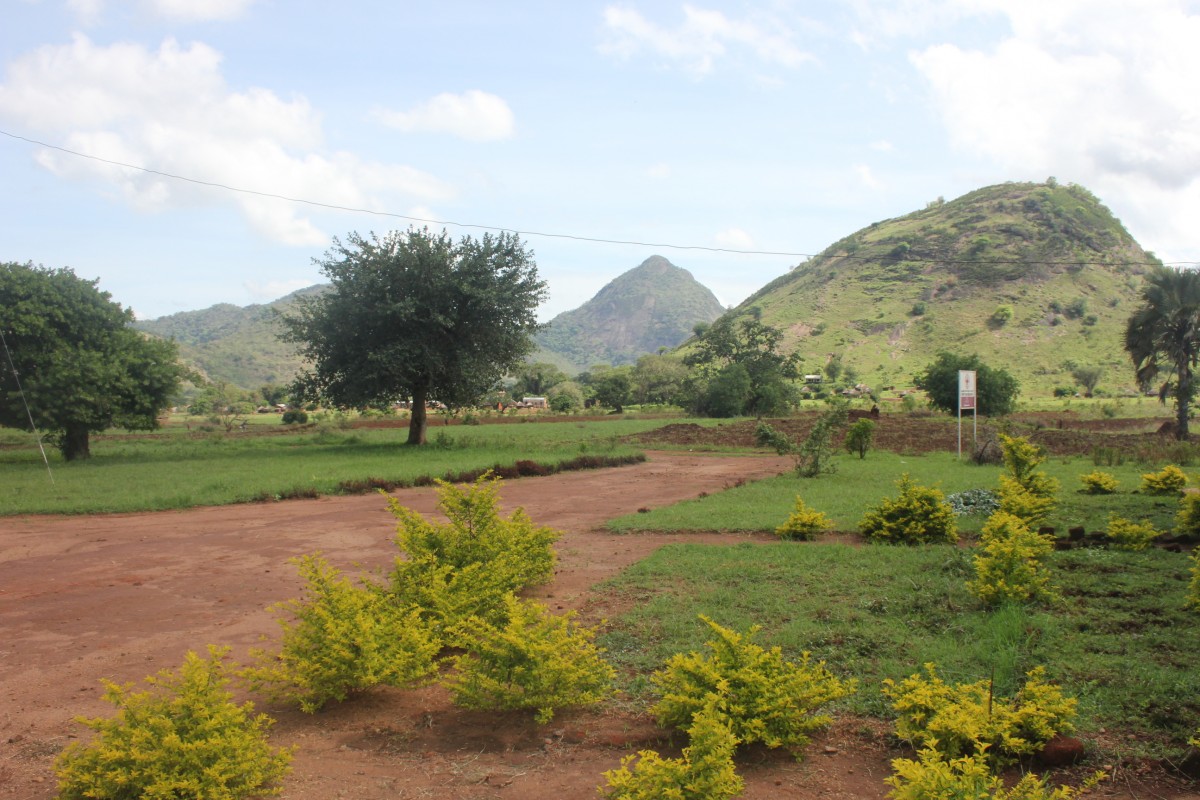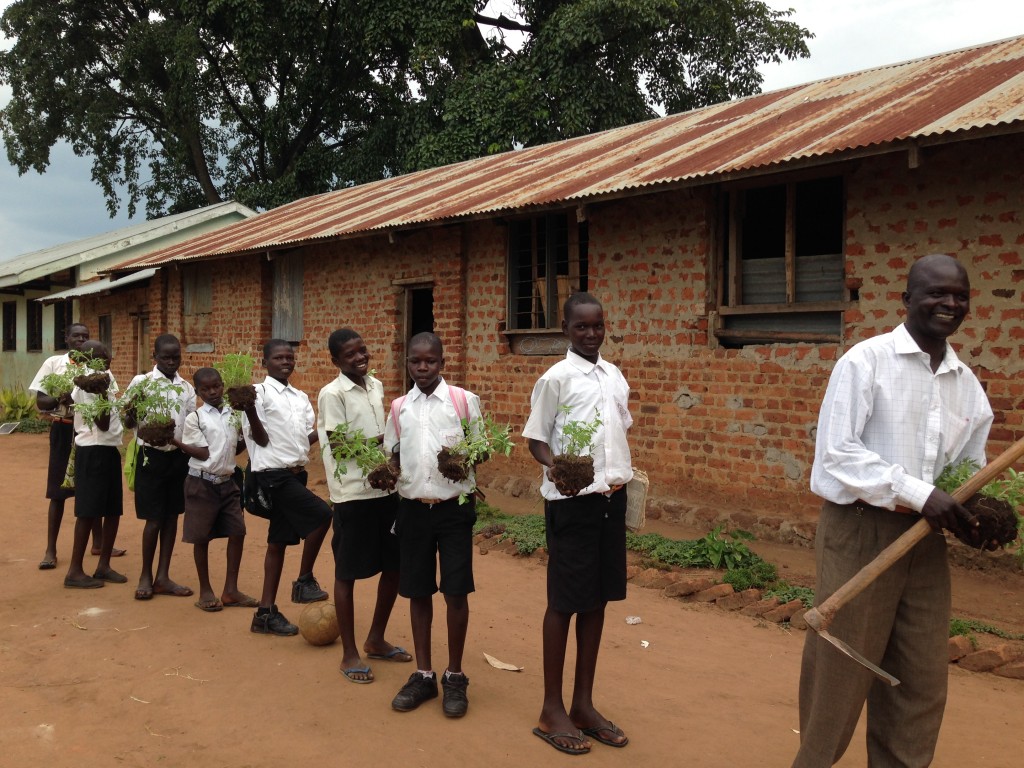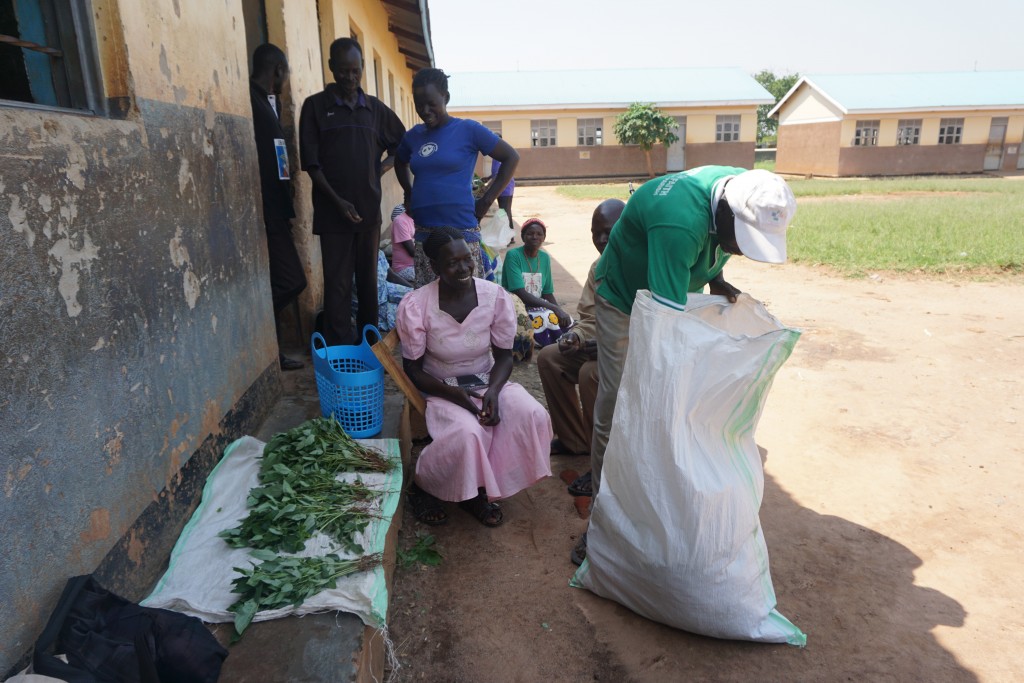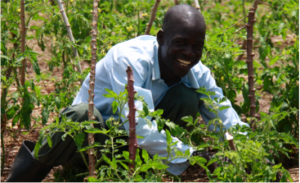School Demonstration Farms
Our ‘School Demonstration Farm’ project ties education and livelihoods together. We currently have 10 SDFs (3 year project) being implemented in Lamwo District.
Our intervention seeks to address interlinked issues – low quality education at a primary level and food insecurity compounded by climate change and poor agricultural productivity.
How does it work?
African Revival works with the community to create farmer groups comprising of 25-30 members who work with the school on the demonstration farm. They attend weekly meetings and receive farming tools, drought resistant seeds, and practical agricultural training by African Revival field staff.
We set up Village Savings and Loans Schemes at the meetings, which allow parents to save for school fees and borrow money to expand their home businesses. African Revival also aims to secure gender balance within the farmer groups and working closely with the District Education Officer to select suitable schools for this project.
After the first harvest (two per year), the groups will then distribute their profits from the yields – with linkages to local suppliers provided by African Revival.
Typically, 30% is given back to the school where the school, the Parent Teacher Association (PTA) and the School Management Committee (SMC) decide how it will be spent. Previously, they have used it to provide school meals, subsidising fees for the poorest pupils, providing scholastic materials, constructing latrines and buying solar panels; another 30% is kept as group development fund and the remaining 40% is shared among group members.
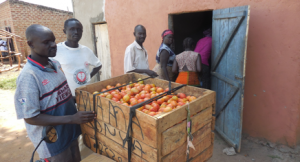 The model uses the primary school as a learning site but the goal is to ensure that the agricultural skills from the school demonstration farms is also utilised by the farmers at their homesteads.
The model uses the primary school as a learning site but the goal is to ensure that the agricultural skills from the school demonstration farms is also utilised by the farmers at their homesteads.
The project has the following key results:
- Creating stronger links between parents and schools
- Children learn practical agricultural skills.
- Increasing agricultural productivity both at the school farm and home gardens
- Establishing linkages between farmers and markets
- Increasing food security and nutrition
Good relationships with a variety of local community members are essential to the success of our work and to the sustainability of our projects.

